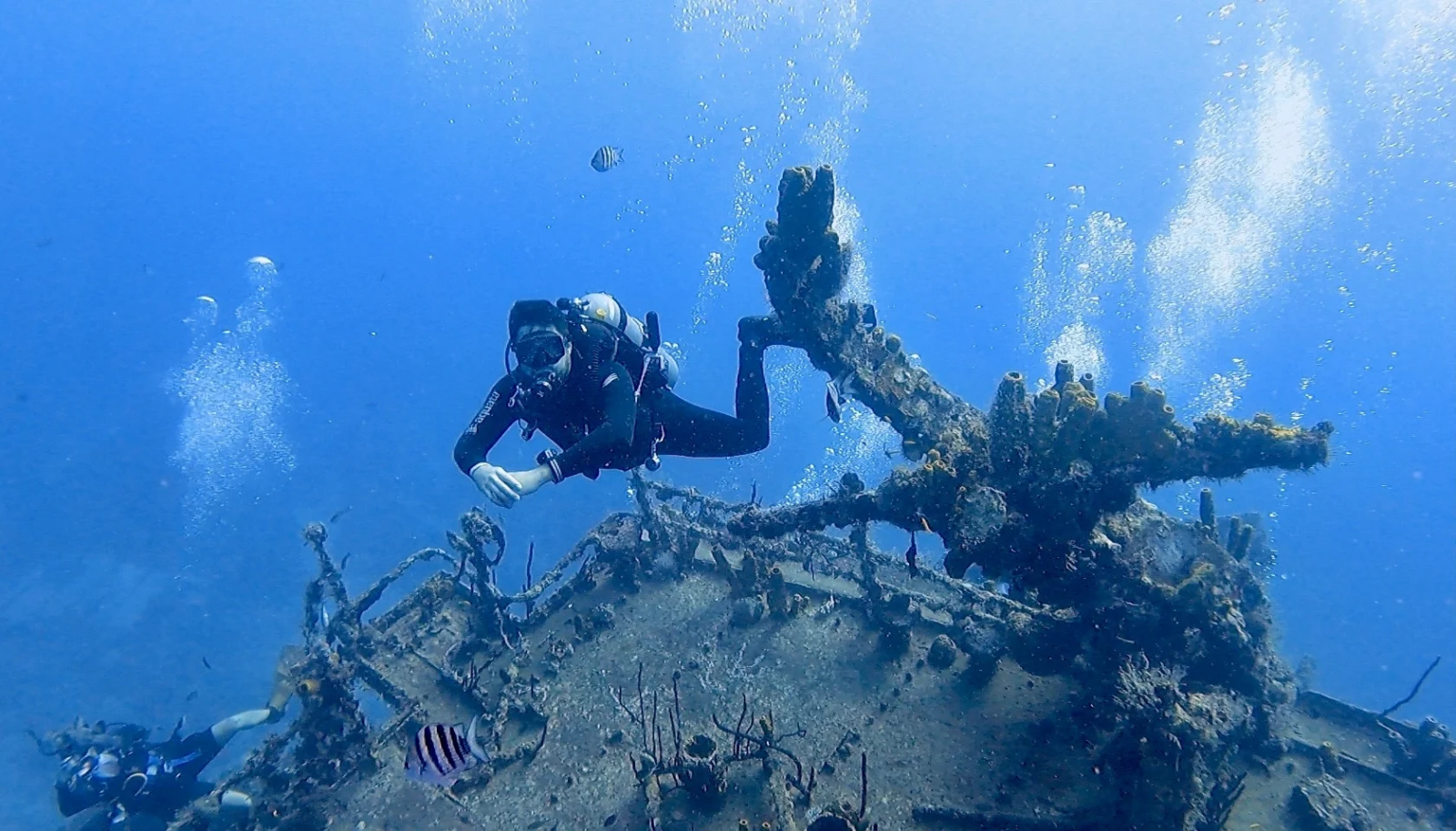
Introduction to Scuba Diving
Scuba diving is not just a sport or hobby; it’s a unique opportunity to explore the mysterious depths of seas and oceans, uncovering unseen beauties and experiencing indescribable emotions. This activity offers a chance to see the world and oneself anew. Underwater diving allows people to immerse themselves in a completely different reality, dominated by magnificent corals, exotic fish, and mysterious underwater landscapes. Scuba diving provides not only unique visual experiences but also physical exercise, meditative relaxation, and deep emotional experiences, thanks to the nature of the underwater environment and its effect on human perception.
Diversity of the Caribbean Sea’s Underwater World
Unique Diving Sites in the Dominican Republic
The Caribbean Sea, particularly the coast of the Dominican Republic, is famed for its picturesque diving locations. Vibrant coral reefs, sunken ships, and an abundance of unique marine creatures make each dive an unforgettable event. For instance, in the Bayahibe area, divers can explore famous shipwrecks like the “Saint George” and “Atlantic Princess,” which now serve as homes for various tropical fish and sea turtles. These artificial reefs attract divers from all over the world and contribute to the restoration of marine biodiversity.
Ecological Importance of Coral Reefs
Coral reefs play a critical role in marine ecosystems, providing habitat, food, and shelter for numerous marine species. They also help protect coastal lines from erosion. Unfortunately, coral reefs worldwide are threatened by climate change, pollution, and overfishing. Active participation by divers in coral conservation programs can significantly impact preserving these unique and vital ecosystems.
Techniques and Equipment for Scuba Diving
Modern Diving Equipment
Ensuring safety and comfort in scuba diving crucially depends on using modern and reliable equipment. Essential diving gear includes:
- SCUBA (Self-Contained Underwater Breathing Apparatus): Allows breathing underwater using compressed air or gas mixtures.
- Pressure Regulator: Controls the pressure of the air supplied from the tank, making it breathable at varying depths.
- Wetsuit: Protects the body from cold and physical damage while also providing additional buoyancy.
- Diving Mask: Ensures clear vision underwater and protects the eyes and nose.
- Fins: Increase the efficiency of each leg stroke, helping to move through water with less effort.
Choosing and maintaining this equipment correctly is key to preparing for diving, affecting overall safety and enjoyment of the dive.
Safe Diving Practices
Safety in scuba diving starts well before the dive. It’s crucial to meticulously plan each dive, considering factors such as weather conditions, dive site characteristics, and personal health. Key aspects of safe diving include:
- Equipment Check: Before every dive, all gear must be thoroughly checked.
- Stay Trained: Regular training and refresher courses help maintain and develop swimming and equipment management skills.
- Dive Planning: Pre-determine the dive route, intended depth, and duration underwater.
- Buddy System: Never dive alone; always dive with a partner or as part of a group.
- Emergency Ascension Procedures: It’s important to know and regularly practice emergency ascent procedures for unexpected situations.
Safe diving results from proper preparation, knowledge, and respect for the marine environment. These practices not only ensure diver safety but also protect vulnerable underwater ecosystems.
Health and Physical Fitness
Health Benefits of Scuba Diving
Scuba diving is not only a fascinating way to explore the underwater world but also an effective means of enhancing health. This activity positively affects many aspects of physical health:
- Cardiovascular Strength: Swimming is a cardio exercise that improves heart and blood vessel function.
- Increased Strength and Flexibility: Managing your body in water requires significant effort, which strengthens muscles and enhances flexibility.
- Enhanced Endurance: Regular diving increases overall stamina, and the breathing techniques used by divers improve lung function.
- Stress Reduction: Connection with nature and the meditative nature of breathing underwater aid in stress reduction and general relaxation.
Overcoming Phobias and Stress
Scuba diving also plays an important role in an individual’s psychological well-being, helping to overcome various fears and boosting self-confidence:
- Overcoming Fear of Water and Darkness: Regular dives help individuals become more comfortable and confident in aquatic environments and adjust to limited visibility underwater.
- Developing Self-Control and Calmness: The ability to control one’s breathing and state in stressful or unusual conditions teaches divers to remain calm and composed.
- Emotional Well-being Improvement: Achievements in diving, like any other activity, contribute to increased self-esteem and overall emotional health.
Scuba diving offers unique opportunities for developing both physical and psychological resilience, making it not just a hobby but a way to enhance life quality.
Cultural and Social Significance of Scuba Diving
Intercultural Communication
Scuba diving is unique in that it unites people from all over the world, regardless of cultural or national backgrounds. Underwater, all cultural barriers dissolve, and the common passion for exploring the underwater world fosters the formation of strong, long-lasting bonds among divers:
- Knowledge and Experience Exchange: Divers often share tips on diving techniques, information about diving locations, and personal stories, enriching each participant’s experience.
- Joint Dives: Participating in group dives allows divers from different countries to explore new places in the company of like-minded individuals, strengthening the international diving community.
- Diving Festivals and Events: Numerous international diving events and festivals provide opportunities for divers to meet, exchange experiences and knowledge, reinforcing the global diving community.
Cultural Enrichment
Scuba diving also contributes to the cultural enrichment of its practitioners:
- Learning History and Culture Through Underwater Relics: Sunken ships and underwater archaeological sites not only provide unique diving sites but also stories related to local cultures and historical events.
- Awareness of Environmental Issues: Diving in different parts of the world allows divers to observe the effects of climate change and human impact on marine ecosystems, raising awareness of the need for conservation.
Conclusion
Scuba diving is a powerful tool for cultural and social exchange, offering unique opportunities for world and self-discovery. Each dive enriches the diver with new knowledge, emotions, and connections, strengthening their bond with nature and the international community. Scuba diving opens doors to a fascinating world of underwater beauty and adventure, making each participant a true global citizen.
